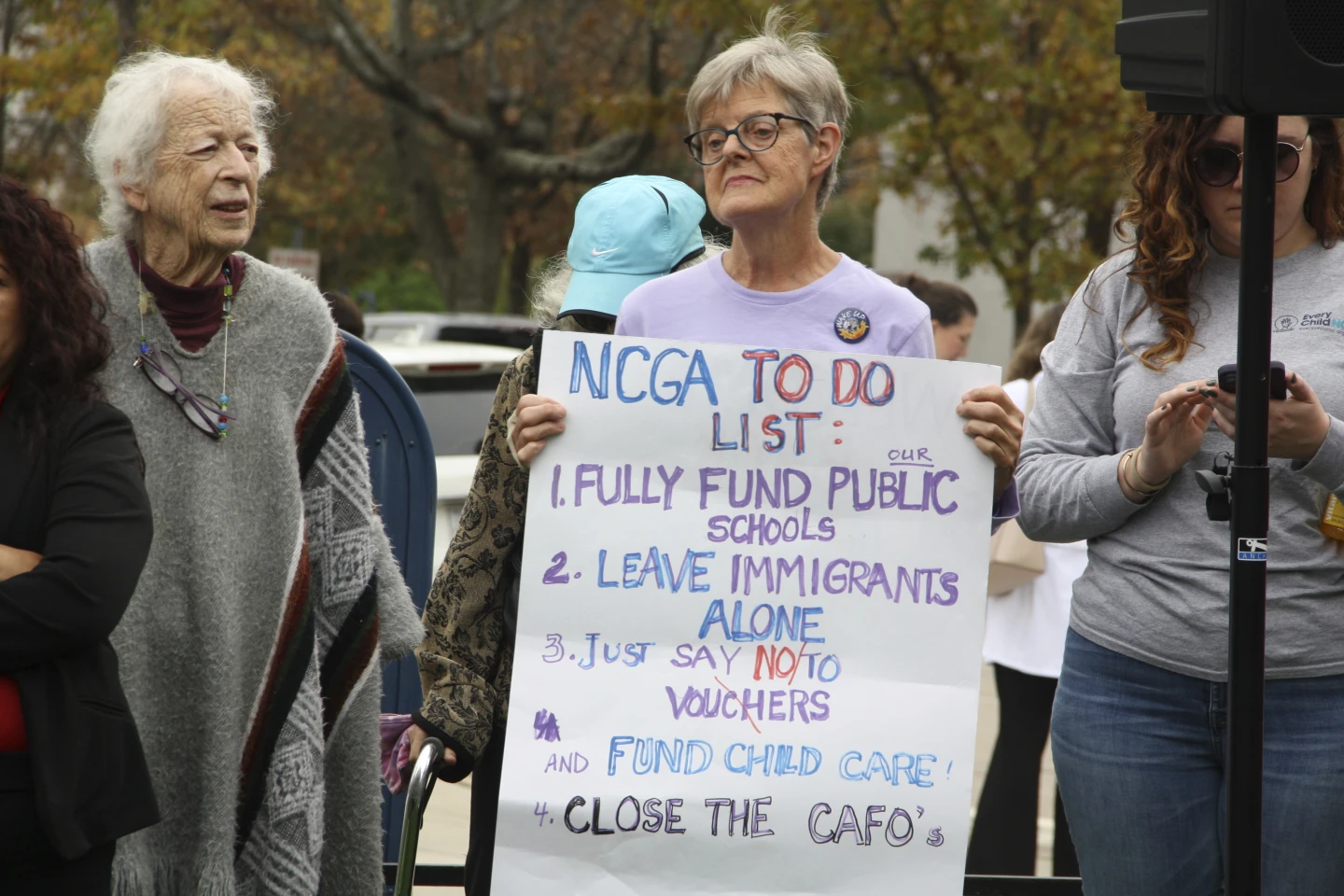North Carolina Republican lawmakers are one step closer to enacting their legislative priorities before the end of the year, as the state House overrode one of Democratic Gov. Roy Cooper’s vetoes Tuesday.
The vetoed bill includes major financing for private school scholarship programs, as well as a legislation requiring local sheriffs to cooperate with U.S. Immigration and Customs Enforcement, two concerns that Republican leaders have prioritized throughout this year’s session. The House override, which occurred mostly along party lines, is part of the General Assembly’s multiday session this week, which includes tasks such as delivering further help to western North Carolina municipalities still dealing with the devastation of Hurricane Helene.
The legislation allocates approximately $463 million to the state’s Opportunity Scholarship program. It also allocates $160 million to address enrollment increases in K-12 public institutions and community colleges.
Most House Democrats railed against private school scholarships, urging Republicans to prioritize public school money and Helene recovery efforts. Cooper, who is term-limited and will leave office in January, urged Republican legislators to follow suit in a letter to lawmakers on Monday.
“The economy of Western North Carolina needs an infusion of funding now, not months from now,” according to his letter.
Republicans, on the other hand, argue that the law is required to reduce long waitlists. Last year, the GOP-controlled General Assembly eliminated income limits for the Opportunity Scholarship program, resulting in increased demand and 55,000 waitlisted children. In September, both legislative chambers reached an agreement on a funding package to eliminate the state’s waitlist, which Cooper rejected.
“We do not need to set up a false choice between hurricane relief, public school funding, and funding for the Opportunity Scholarship program,” Mecklenburg County Republican Rep. Tricia Cotham said in support of the legislation.
The law also includes language requiring North Carolina sheriffs to comply with ICE detainers, which are requests to hold detainees suspected of being in the country illegally, as well as alert federal immigration officers. Under the new law, those inmates would be kept for up to 48 hours on a judicial official’s order until they could be picked up by ICE.
The law comes following President-elect Donald Trump’s election triumph earlier this month. His campaign emphasized illegal immigration as a safety issue, and he pledged large deportations during his second term, which was cited during House debate as a rationale to support the bill.
“I hope you will take into account the overwhelming opinion expressed by voters in this state and country in the recent national election,” Caldwell County Republican and bill sponsor Rep. Destin Hall stated.
Opponents of the bill, including numerous activists at an Every Child NC news conference earlier Tuesday, expressed worry that it would unfairly target North Carolina’s immigrant populations.
“HB 10 is extremely harmful for the undocumented community, especially children who attend our public schools in fear that their parents will be detained,” said Brandy Sullivan, Southern Wake Liberal Ladies co-founder and naturalized Mexican citizen.
To make the law effective, the Senate must also overcome Cooper’s veto.









